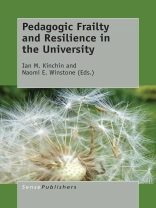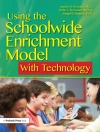Pedagogic Frailty and Resilience in the University presents a theoretical model and a practical tool to support the professional development of reflective university teachers. It can be used to highlight links to key issues in higher education. Pedagogic frailty exists where the quality of interaction between elements in the evolving teaching environment succumbs to cumulative pressures that eventually inhibit the capacity to develop teaching practice. Indicators of frailty can be observed at different resolutions, from the individual, to the departmental or the institutional. Chapters are written by experts in their respective fields who critique the frailty model from the perspectives of their own research. This will help readers to make practical links between established bodies of research literature and the concept of frailty, and to form a coherent and integrated view of higher education. This can then be explored and developed by individuals, departments or institutions to inform and evaluate their own enhancement programmes. This may support the development of greater resilience to the demands of the teaching environment. In comparison with other commonly used terms, we have found that the term ‘frailty’ has improved resonance with the experiences of colleagues across the disciplines in higher education, and elicits a personal (sometimes emotional) response to their professional situation that encourages positive dialogue, debate and reflection that may lead to the enhancement of university teaching. This book offers a particular route through the fractured discourses of higher education pedagogy, creating a coherent and cohesive perspective of the field that may illuminate the experiences and observations of colleagues within the profession. “If we are to realise the promise of higher education … we will need the concepts, methods, and reflections contained in this book.” – Robert R. Hoffman
Tabella dei contenuti
Foreword; Mapping the Terrain of Pedagogic Frailty; Framed Autoethnography and Pedagogic Frailty: A Comparative Analysis of Mediated Concept Maps; The ‘3 Rs’ of Pedagogic Frailty: Risk, Reward and Resilience; Semantic Waves and Pedagogic Frailty; ‘Teaching Excellence’ in the Context of Frailty; The Role of Values in Higher Education: The Fluctuations of Pedagogic Frailty; Integrative Disciplinary Concepts: The Case of Psychological Literacy; Re-Framing Academic Staff Development; Trajectories of Pedagogic Change: Learning and Non-Learning Among Faculty Engaged in Professional Development Projects; Pedagogic Frailty and the Research-Teaching Nexus; Breaking Down Student-Staff Barriers: Moving towards Pedagogic Flexibility; Academic Leadership; Enhancing Quality to Address Frailty; Profiling Pedagogic Frailty Using Concept Maps; Pedagogic Frailty: Opportunities and Challenges; About the Contributors.












